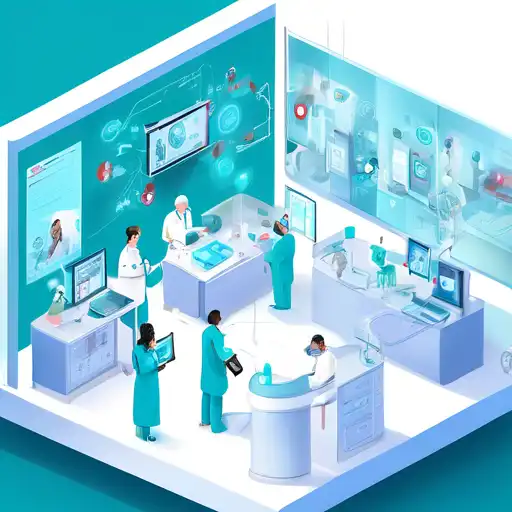The Transformative Impact of IoT on Healthcare Delivery
The Internet of Things (IoT) is revolutionizing industries across the globe, and healthcare is no exception. By integrating IoT devices and technologies, healthcare services are becoming more efficient, personalized, and accessible. This article explores the myriad ways in which IoT is enhancing healthcare delivery, from remote monitoring to improved patient outcomes.
Remote Patient Monitoring
One of the most significant contributions of IoT in healthcare is the ability to monitor patients remotely. Wearable devices and sensors can track vital signs such as heart rate, blood pressure, and glucose levels in real-time. This data is then transmitted to healthcare providers, enabling timely interventions and reducing the need for hospital visits. For more on how technology is changing patient care, check out our article on Digital Transformation in Healthcare.
Enhanced Drug Management
IoT is also transforming drug management through smart pill bottles and dispensers. These devices remind patients to take their medication on time and alert healthcare providers if doses are missed. This not only improves adherence to treatment plans but also minimizes the risk of adverse drug interactions.
Improved Hospital Operations
Hospitals are leveraging IoT to streamline operations and enhance patient care. Smart beds, for instance, can adjust automatically to patient needs and alert staff to potential issues. Similarly, IoT-enabled asset tracking ensures that medical equipment is readily available when needed, reducing delays in treatment.
Personalized Healthcare
IoT facilitates personalized healthcare by collecting and analyzing vast amounts of patient data. This enables healthcare providers to tailor treatments to individual needs, improving outcomes and patient satisfaction. The integration of IoT with artificial intelligence further enhances this capability, offering predictive insights into patient health.
Challenges and Considerations
Despite its benefits, the adoption of IoT in healthcare is not without challenges. Issues such as data security, privacy concerns, and the need for robust infrastructure must be addressed. However, with ongoing advancements in technology and regulatory frameworks, these hurdles are increasingly being overcome.
In conclusion, IoT is playing a pivotal role in transforming healthcare services. By enabling remote monitoring, improving drug management, streamlining hospital operations, and facilitating personalized care, IoT is making healthcare more efficient and effective. As technology continues to evolve, the potential for IoT to further enhance healthcare delivery is boundless.
